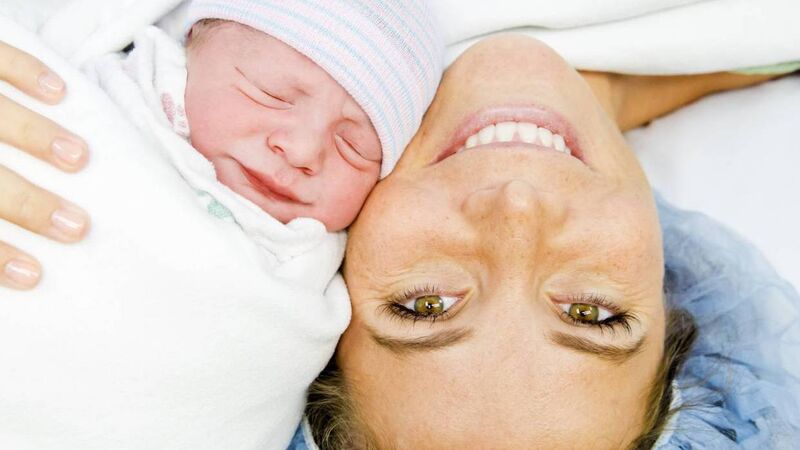ÁILÍN QUINLAN: In our impatient world, even births are being hurried along

I ignored the emails. Then ignored the newsletter. Time passed. I started to read bits of it. Then more bits. Here and there.
Eventually, I admitted that the guy had some decent ideas.
Turns out the man behind it, Sahil Bloom, was a business/financial whiz who started putting out his newsletter at the start of the covid pandemic (remember that) back in the spring of 2020.
It became very popular. Earlier this year he published a book . Bloom’s theory is that wealth is not just a financial construct. He believes wealth is also physical wealth, time wealth, and of course mental and social wealth.
He does quite a bit of pondering about life and the human experience and has come up with ways of possibly managing it all a bit better.
He seems interested in the complex, yet often commonplace, shocks to the system that happen to a lot of us out of the blue.
I started to notice that Bloom has a way of making you think how you could bring your own influence to bear on things that happen to you. Not all of his ideas will resonate with everyone, but some might stick. At any rate, he’s worth a read.
Research found that more than one in three first-time mothers were being given drugs to artificially accelerate their labour, when there appeared to be no requirement for it to be used.
But why, I thought. What’s the rush if there was no problem to begin with?
Back to Bloom.
We live, he argues, in a culture where people seem to want to acquire a sense of status through buying things like expensive cars and big homes. Yachts. Private jets, even.
The idea is (as I understand it) that you will gain a sense of your own impressive status when you can see other people seeing you driving your big fancy car around and viewing the online images that you made sure to post of you in your car/fancy house/yacht.
Such possessions, you believe, demonstrate your status to the world. Which in turn makes you feel even more good about yourself.
So, in essence, if I understand Bloom properly, what our culture is teaching us to do is chase a kind of bought status because of a belief that if someone has expensive, impressive possessions, then that person must be a big-status, impressive sort of person.
But, Bloom explains, there’s a catch.
No matter how hard we work to achieve all these status signifiers (car, house, yacht), no matter how many of these status symbols we manage to purchase, there will inevitably be someone with a higher level of bought status than us.
Someone else will always have a bigger, better kind of bought status. That’s life.
Bloom advises that we start to become aware that we may well be taking certain actions purely for the purpose of impressing others, rather than, for example, building something and putting hard work and effort into a real initiative of some kind, something real that will eventually bring you real, earned respect.
What, for example, has given rise to the sense of entitlement and impatience and this issue of ‘me first above everything’ that so often seems to be par for the course now?
I wonder if some of our problems arise out of our belief in the idea of bought status?
We always had anti-social behaviour, but when did it become this bad?
Who or what gave rise to these aggressive hooded children and teenagers who have no respect for authority of any kind, and who walk down the centre of pavements in expensive sports clothing staring into expensive phones and expecting everyone to jump out of their way?
Is this rooted in a false sense of status?
Who has given them this false sense of status?
What has caused the casual disrespect you encounter almost everywhere now?
When did cashiers at checkouts stop adding “Please” at the end of the sentence in which they tell you how much you owe for your groceries?
What has given rise to the impatience with which so many will bang through a door in front of an elderly person or somebody laden with bags?
Why do so few people now seem able to wait or pause, even for a second? Why do so few seem prepared to take a few seconds to give way to someone else, give up their seat for someone, or hold a door for someone?
Could any of this possibly be down to a sense of bought status?
Here’s something completely different to think about, at least in terms of impatience.
This new study I mentioned at the start seems to identify an impatience in Irish maternity wards, and some births being artificially accelerated with medication.
This is reportedly being done despite World Health Organisation advice that the drug to accelerate labour should ONLY be used if labour is abnormally slow after 5cm dilation, once active labour has begun.
However, this study out by Trinity College researchers found that nearly 60% of women surveyed received the oxytocin drug when they were between zero and 4cm dilated, which means that the intervention was carried out before active labour had even begun.
The report said that augmenting labour in this way can unnecessarily expose mother and baby to avoidable risks.
Whhhaaaat?
Where did this apparent impatience come from, and who got the idea that a service dedicated to the care of expectant mothers and their labour, is too damn busy and too damn important to wait for a perfectly healthy, natural labour to proceed at its own pace?







 App?
App?




